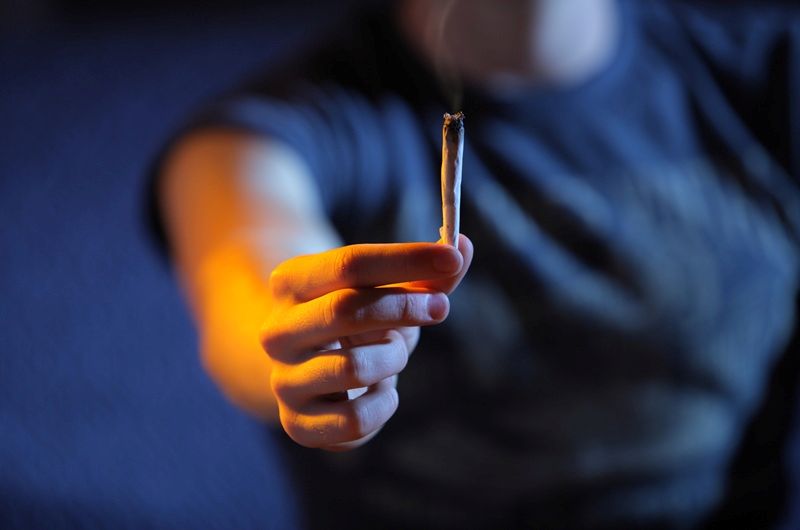Facing a drug paraphernalia charge in Fairfax County can be stressful and confusing. The consequences can affect your future, so you must understand your rights and options. Knowing how Virginia law defines paraphernalia, the penalties involved, and potential defense strategies can help you make informed decisions.
This article explains what you need to know about fighting drug paraphernalia charges. It explores legal definitions, possible defenses, and how the court process works. It also explains why having skilled legal representation, like Fairfax County Criminal Attorneys, can significantly improve your chances of a favorable outcome.

Overview Of Drug Paraphernalia Laws In Virginia
Virginia law defines drug paraphernalia as any item used to manufacture, produce, store, or consume controlled substances. It includes syringes, rolling papers, bongs, and digital scales. Even household items, if suspected of drug use, may be classified as paraphernalia.
Possessing, distributing, or selling drug paraphernalia in Virginia can lead to serious legal consequences. A first-time offense is a Class 1 misdemeanor, carrying up to 12 months in jail and fines up to $2,500. Repeat offenses or intent to sell can lead to harsher penalties.
Drug paraphernalia charges may seem minor, but they carry long-term consequences. A conviction can affect employment, housing, and future opportunities. Understanding the law is essential to avoiding these penalties. Moreover, knowing your rights and legal options is critical to protecting your future and building a strong defense.
Common Defenses Against Paraphernalia Charges
A drug paraphernalia charge doesn’t automatically mean a conviction. Prosecutors must prove the item was for illegal drug use, and there are several legal defenses to challenge their case. With the right strategy, your attorney may reduce or dismiss the charges.
Lack Of Knowledge About The Item
One of the solid defenses is proving that you were unaware the item was for drug-related purposes. The prosecution must show intent, which means there are possible grounds for dismissal if the accused didn’t know the item or how to use it. This defense is particularly relevant if the item was found in a shared space or belonged to someone else.
If your attorney can demonstrate that you had no control over or knowledge of the item’s intended use, the case against you weakens significantly. The burden is on the prosecution to prove beyond a reasonable doubt that you knowingly possessed paraphernalia.
The Item Had A Legal Purpose
Many items classified as drug paraphernalia also have legitimate uses. A digital scale, for example, could be used for cooking or jewelry making. Demonstrating that the item was for a lawful purpose can weaken the prosecution’s case. The same applies to plastic bags, rolling papers, or glass pipes, which all have everyday uses unrelated to drugs.
Your attorney can argue that the item’s intended purpose was legal, making it difficult for the prosecution to prove criminal intent. If there is no clear evidence linking the item to drug use, the case may lack the necessary proof for a conviction.
Unlawful Search & Seizure
Any evidence found could be thrown out if law enforcement violated your Fourth Amendment rights during the search. Officers must follow legal procedures when conducting searches. Your attorney can challenge the evidence if they don’t have a warrant or probable cause.
Illegal searches happen more often than people realize. Any violation of your constitutional rights could make the prosecution’s case inadmissible in court. If an officer lacks justification to search your home, car, or personal belongings, your attorney can file a motion to suppress the evidence. Without that evidence, it can weaken the case or dismissed entirely.
Insufficient Evidence From The Prosecution
The prosecution must prove beyond a reasonable doubt that the item was for drug-related purposes. If the evidence is weak, your attorney can argue that there is insufficient proof for a conviction. It can lead to reduced charges or even a case dismissal.
Prosecutors rely on circumstantial evidence to build their case, but gaps or inconsistencies make it easier to challenge their claims. A strong legal defense will focus on exposing weaknesses in the evidence and questioning witness credibility. It will also ensure that the prosecution cannot meet the high standard required for a conviction.
Fighting a drug paraphernalia charge requires a strong legal strategy and a clear understanding of your rights. A solid defense can challenge the prosecution’s case and significantly improve your chances of a favorable outcome. With an experienced attorney, you can fight back against unfair charges, protect your record, and secure your future.
Empower yourself by understanding the legal process, which is vital in preparing your defense.
A Guide To The Step-By-Step Legal Process
Understanding how the legal process works can help you confidently navigate your case. Each stage from arrest to potential sentencing plays a critical role in your defense. Knowing what to expect allows you to make informed decisions and better protect your rights.
Below is the breakdown of each step in the process and what it means for your defense.
Step 1: Arrest & Booking
After an arrest, police will take you into custody, collect your fingerprints, and document the charges. It can be a formidable experience, but staying calm is essential. It’s important to avoid answering questions until you have legal representation to protect your rights.
Anything you say can be used against you, so it’s wise to remain silent and request an attorney immediately. Law enforcement may take your photograph during booking and temporarily confiscate personal belongings. Depending on the charges, you may be eligible for bail, which your attorney can help arrange immediately.
Step 2: Arraignment & Plea Options

At the arraignment, the prosecution will formally present your charges and allow you to enter a plea guilty, not guilty, or no contest. Your attorney will advise you on the best course of action based on the circumstances. The judge may also set bail conditions or release terms at this stage.
If you plead not guilty, your case progresses to the pre-trial phase. Pleading guilty or no contest may lead to sentencing without a trial, but your attorney can negotiate plea agreements to reduce penalties. This stage sets the foundation for how your case will proceed in court.
Step 3: Pre-Trial Motions & Evidence Review
Your attorney may file motions to challenge evidence, request a case dismissal, or negotiate with the prosecution. Any evidence obtained unlawfully can be excluded from trial, weakening the state’s case against you. This phase allows both sides to review the evidence, question witness credibility, and determine the strength of the prosecution’s claims.
Your lawyer may also negotiate a plea deal if it’s in your best interest. Strong pre-trial motions can sometimes lead to dropped charges or a significantly reduced sentence, making this stage a critical part of your defense strategy.
Step 4: Trial & Sentencing
If your case goes to trial, the prosecution will present its evidence, and your attorney will counter with a defense strategy. If convicted, sentencing will follow, determining fines, probation, or jail time. Trials involve witness testimony, cross-examinations, and legal arguments to prove your innocence or weaken the prosecution’s case.
If you are found guilty, your attorney can argue for reduced penalties during sentencing. Depending on the circumstances, alternative sentencing options, such as rehabilitation programs or probation, may be available. A strong defense throughout the trial can impact the outcome of your case.
Knowing what to expect at each stage can help you stay prepared and make informed decisions. With a skilled attorney guiding you, you can work toward a favorable outcome for your case.
The Importance Of Legal Representation
Facing a drug paraphernalia charge in Virginia can be shattering, but having the right attorney can make a significant difference. Experienced legal counsel can analyze the prosecution’s case, identify weaknesses, and develop a strong defense.
An attorney can negotiate with prosecutors to reduce charges. They can also secure alternative sentencing options like probation or a diversion program, helping you avoid the harshest penalties.
In the courtroom, a skilled attorney can challenge questionable evidence, cross-examine witnesses, and present compelling arguments in defense. Their competence can increase your chances of a favorable outcome through case dismissal, reduced charges, or lighter sentencing.
Having the right legal team can make the difference in fighting drug paraphernalia charges. Fairfax County Criminal Attorneys provides strong defense strategies to protect your rights and secure a favorable outcome.
Fairfax County Criminal Attorneys Can Defend You
At Fairfax County Criminal Attorneys, we advocate to protect the rights of those accused of drug-related offenses in Virginia. We understand the impact of these charges and work tirelessly to secure favorable outcomes for our clients.
We take a comprehensive approach to defending drug paraphernalia charges. We analyze the evidence, identify legal weaknesses, and build a strong defense for dismissal or reduced penalties. Our goal is to protect your freedom and future.
Our firm has the experience, dedication, and commitment to justice. We fight aggressively for our clients, using every legal tool available. If you’re facing a drug charge in Fairfax County, we’re here to help you through the legal process.
Drug paraphernalia charges in Fairfax County carry severe consequences, including fines, jail time, and a permanent criminal record. Understanding Virginia’s laws, possible defenses, and the legal process is essential to protecting your future. Strong defense strategies include proving a lack of knowledge, demonstrating a legal use for the item, and challenging unlawful searches.
Each stage of the legal process from arrest to trial impacts the outcome of your case. Skilled legal guidance and representation can make a significant difference.




